
What is Specialty Coffee?
Share
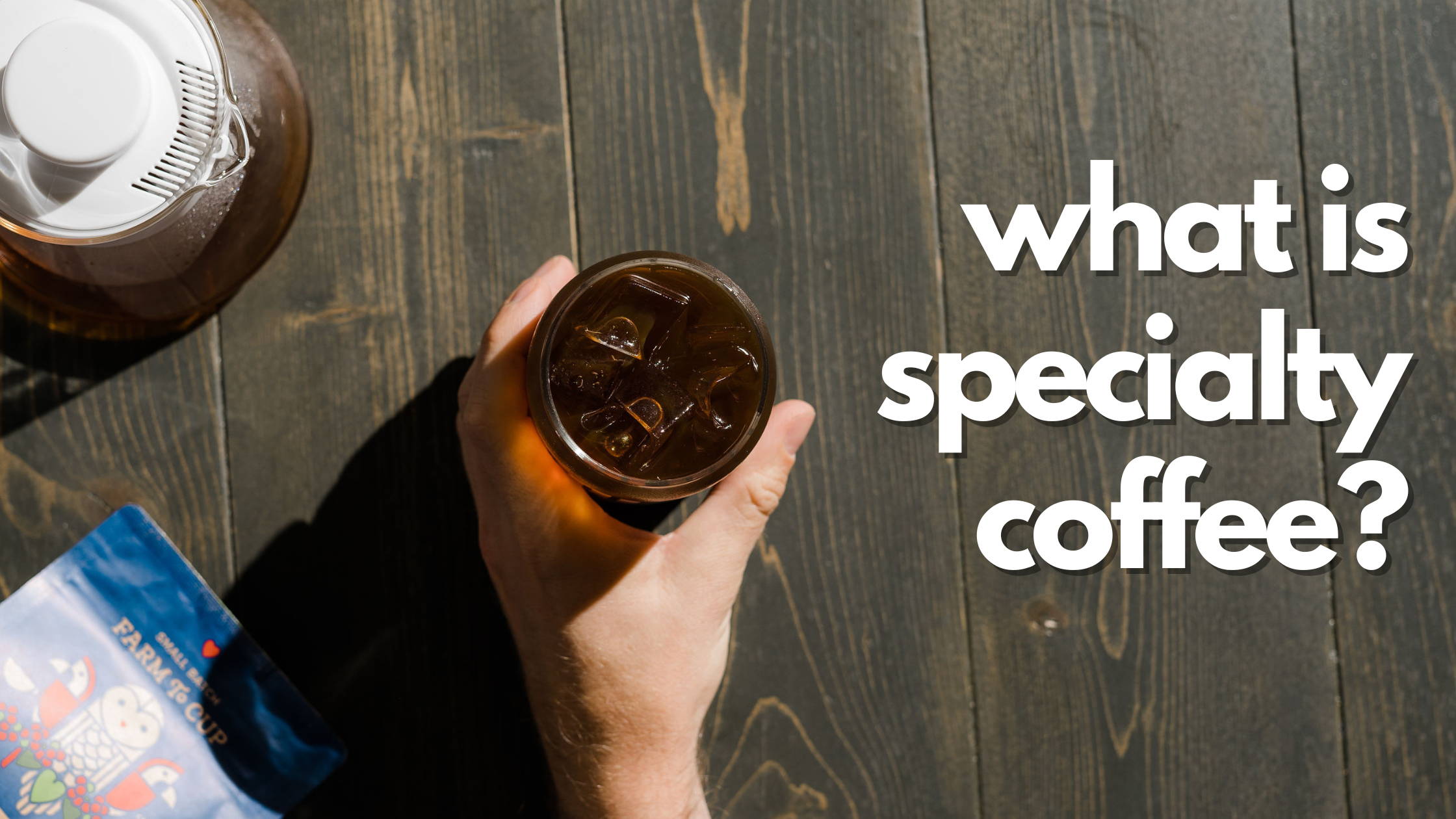
Only 10% of all coffee ever reaches "specialty" status, and here's why...
These days, it’s not uncommon to come across a myriad of catchy buzzwords and accreditations when you purchase a bag of beans from your favorite coffee provider…
From “gourmet,” “craft,” “organic,” and “specialty” labels attached to any given roast, the average coffee consumer often only wants to know the answer to a very simple and important question prior to purchase… Is this coffee good enough to drink black?
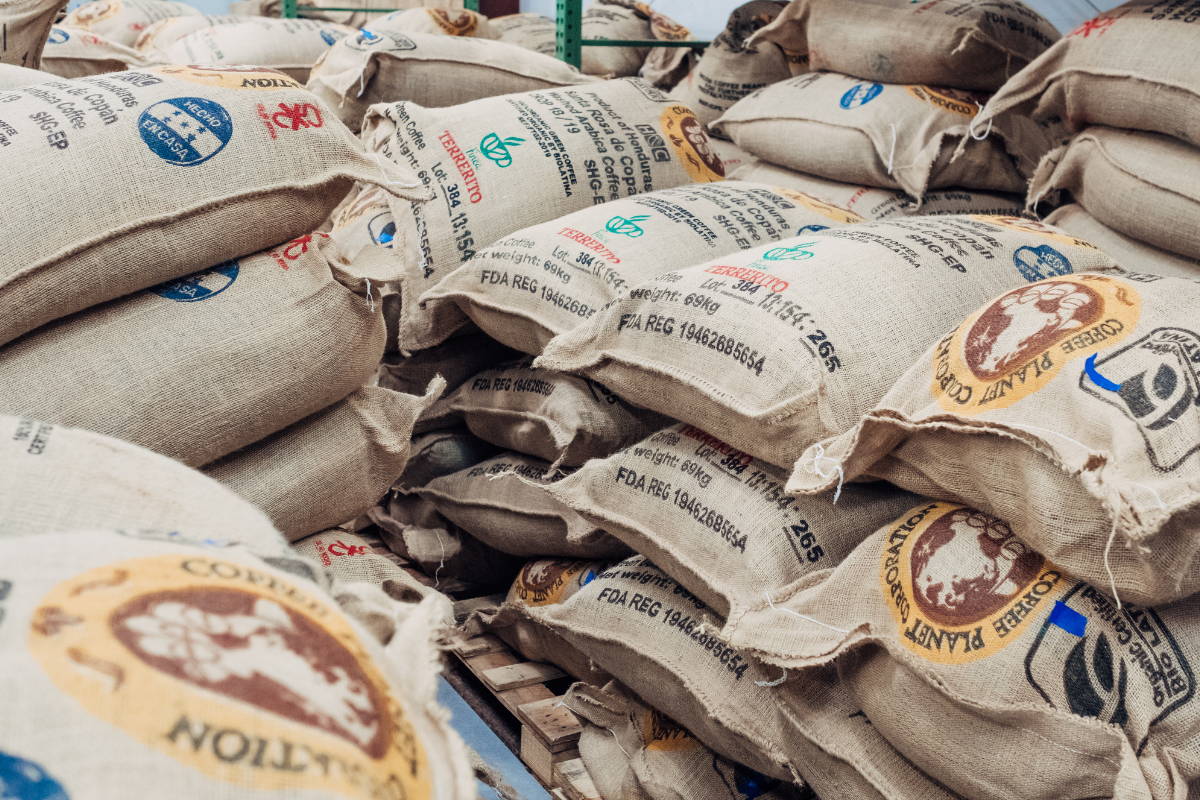
Although many small and big batch roasters use terms like “gourmet” or “craft” to help sell the taste of their coffee, there isn’t any real authentication or merit to these claims.
In fact, only 10% of all coffee produced in the world can classify their coffee as good enough to be “specialty” quality, and that’s because “specialty” status requires the approval of the highest authorities in the coffee world—the Specialty Coffee Association (SCA) and Coffee Quality Institute (QCI).
In this week’s Alma-nac Blog, we’ll be breaking down what specialty coffee actually is, how coffee earns the “specialty” title through rigorous evaluation, how each step in a coffee cherry’s farm to cup journey affects the outcome of a coffee’s specialty status, and how you can easily find and verify specialty grade coffee from wherever you are!
So, brew up a fresh cup, sit back, subscribe to our email newsletter, and get ready to enjoy the most straight-forward breakdown of specialty coffee you’ll likely find on the internet.
💌 Subscribe 💌
Our email newsletter isn't your typical marketing ploy: sign up now and get notified when our latest blog posts publish, new coffee roasts debut, and other exciting coffee social & video content drops!
What is the textbook definition of "specialty" coffee?
According to the SCA's 2022 guidelines, “specialty” status can only occur when a coffee achieves a score of 80 or higher out of 100 on a standardized score sheet from an unbiased panel of expert coffee testers, commonly referred as Q Graders.
Before it can even make it to a Q Grader panel, however, coffee must be roasted no more than 24 hours prior to evaluation, can only spend 8-12 minutes in a roaster, and must achieve a certain roast profile and final coloration that the SCA outlines in detail here.
Then, to perform this standardized scoring process, Q graders evaluate coffee in a process called “cupping," which is intended to extract flavors from coffee in the most raw, replicable, and sensory-focused manner possible.
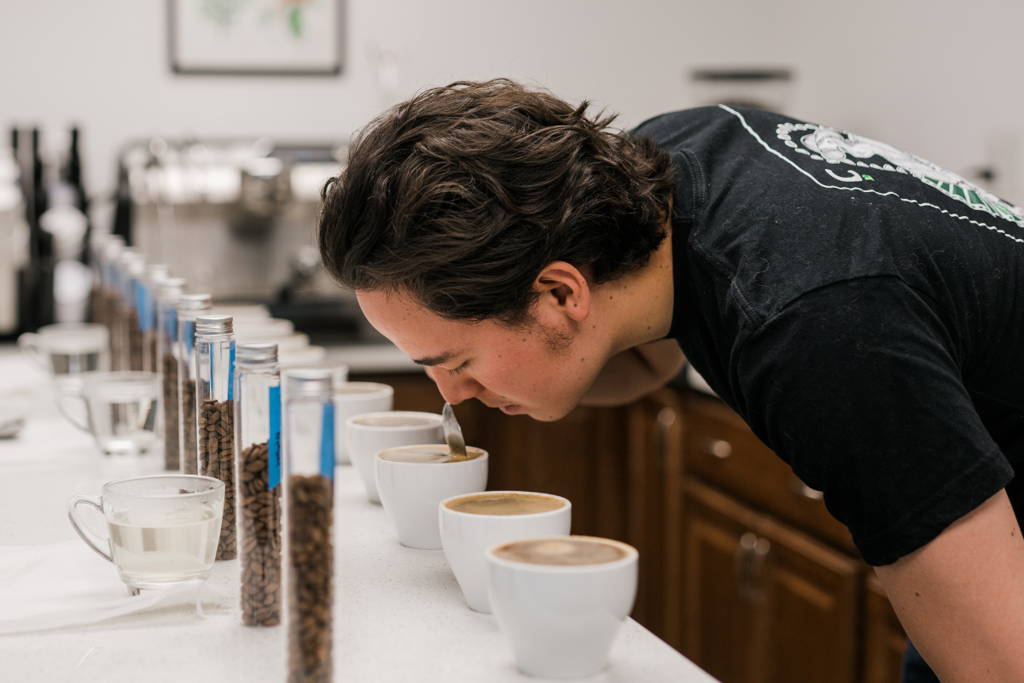
Q graders will evaluate a coffee through cuppings to look for specific tasting notes, fragrance/aroma, mouthfeel, uniformity, acidity, etc., and then score the coffee across a wide array of sensory and quality focused criteria before finishing their evaluation (see the specifics of their grading system here).
After all of these individual scores are totaled and averaged by a panel of Q Graders, coffee that scores higher than 80 is officially deemed “specialty” coffee by the SCA and QCI and anything scoring below is considered “commodity” coffee.
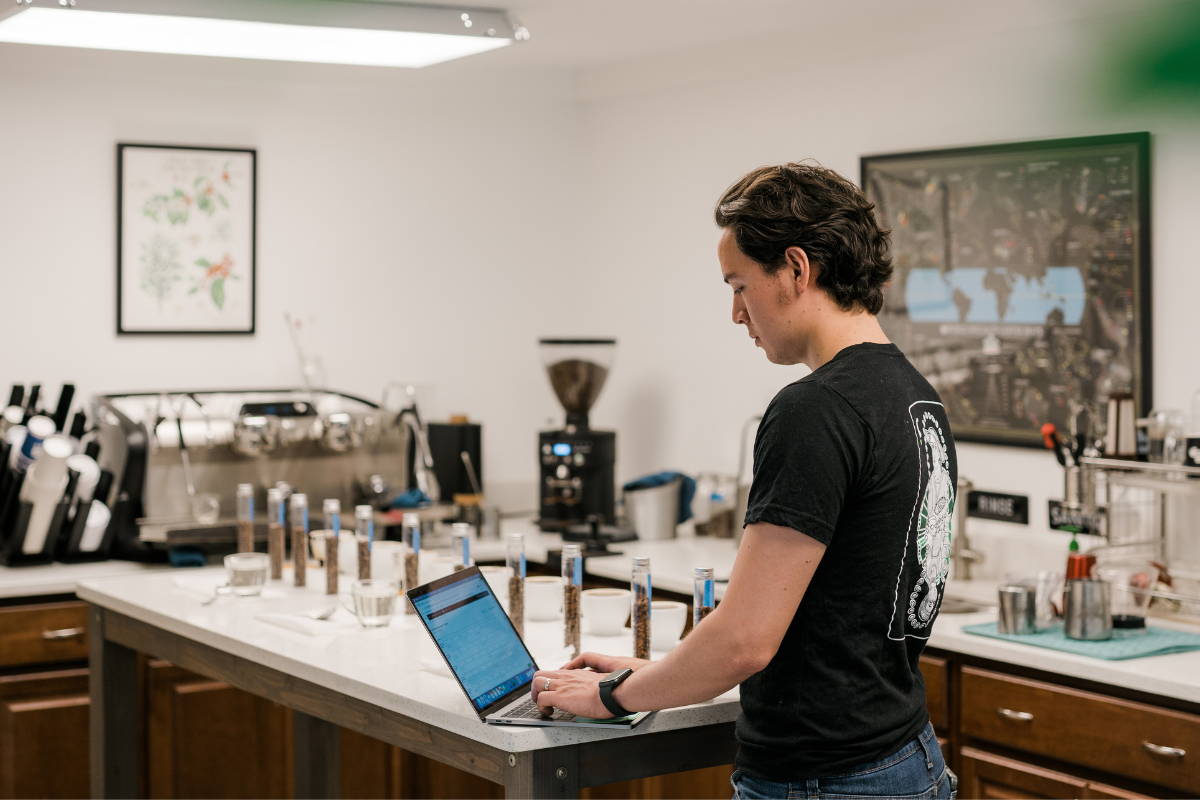
In short, “specialty” status is not exactly easy to obtain, which is why only 10% of all coffee produced falls into this criteria.
To achieve the official specialty grading, many processes need to go right from the moment a coffee seed is planted to the time it is roasted, and one single mishap in the coffee supply chain could mean the difference between a specialty or commodity status…
From farm to cup: What’s so special about specialty coffee?
On the farming level, specialty coffee *literally* stems from farmers who dedicate their entire livelihoods to understanding, adapting, and optimizing their farmlands for producing extraordinary coffee, often with a heavy focus on sustainable practices.
In our own Honduran family coffee farms, for instance, we recently covered the many permaculture practices our farming team commits to in a full-length blog, and these practices directly contribute to the quality and consistency of our final roasted coffee.
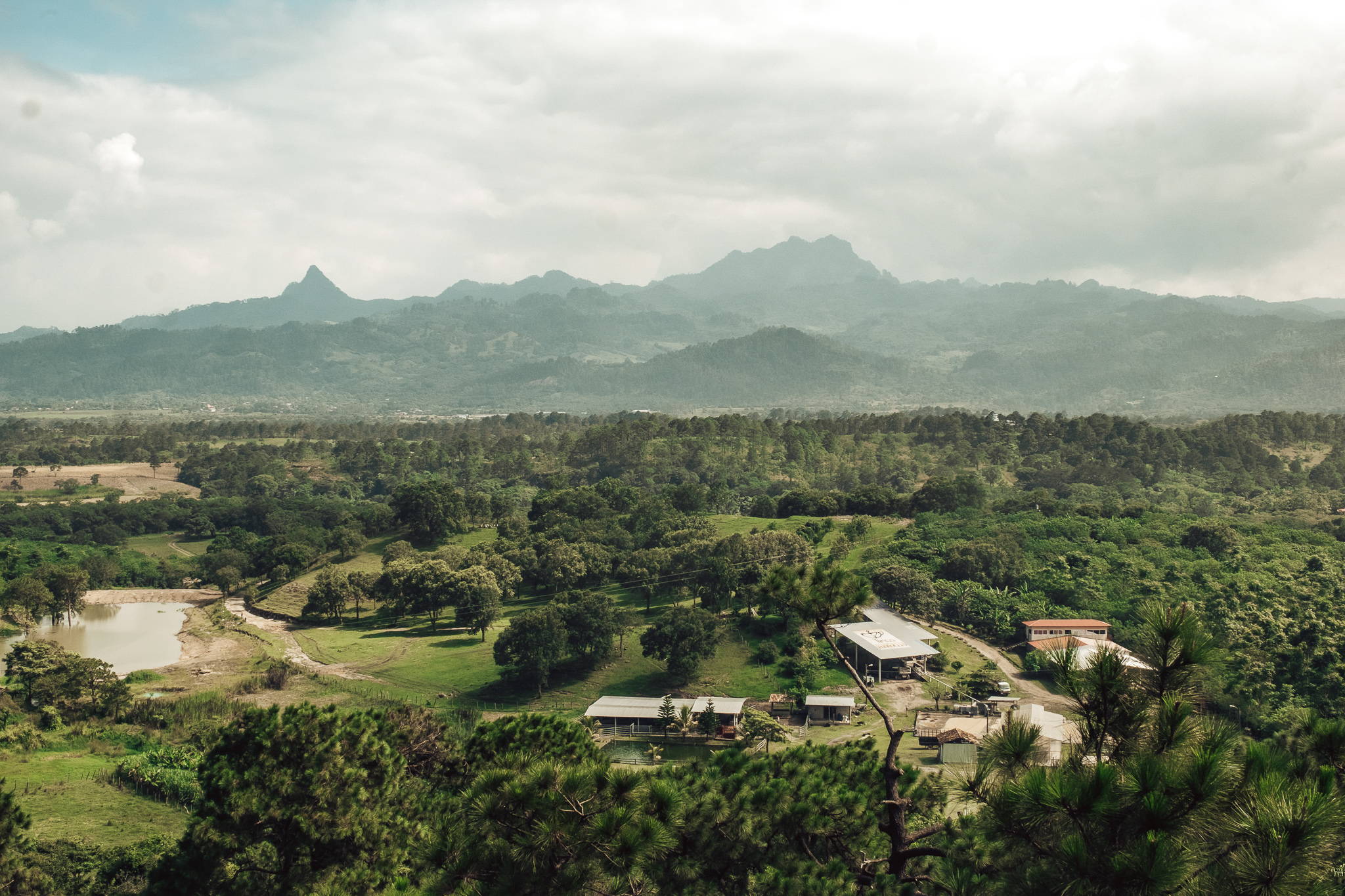
However, even with the best farming practices in place, attention to quality during the processing of raw coffee after harvest is a crucial step farmers dedicated to achieving specialty status must take before exporting their beans to a specialty focused roaster.
From sorting, washing, and eliminating defects at every possible step, coffee processing ensures the highest quality beans are selected to be roasted and, eventually, graded by a panel of Q graders, meaning the consistency of a final roast fully depends on the many hands involved in farming/processing beforehand.
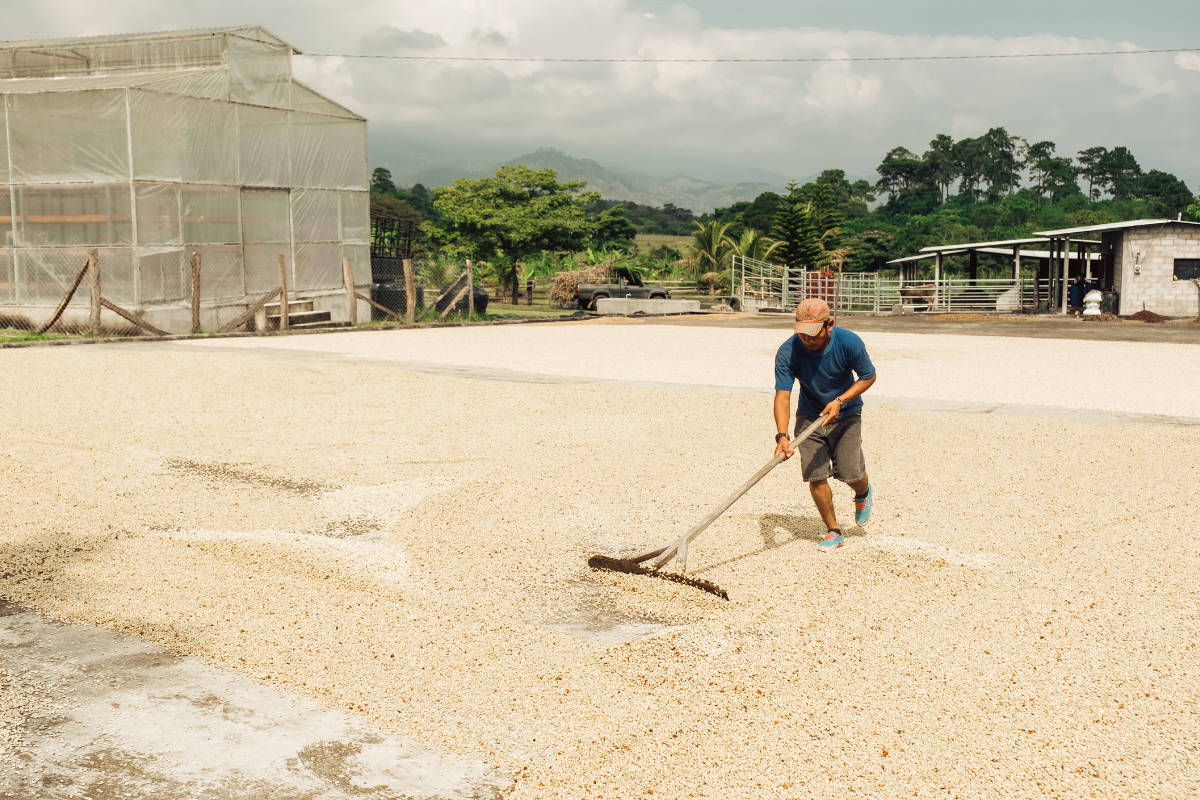
After being grown under sustainably focused conditions and meticulously checked for quality during processing, unroasted (“green bean”) coffee makes its way to a specialty focused roaster who then works to bring the most ideal tasting notes during roasting and into the final cup.
If all goes well, and the final roasted coffee is deemed “specialty” status by highly trained Q Graders, that coffee then makes its way to your cup.
Nevertheless, even if a bean is rated as “specialty” grade by the SCA, the next challenge in a long supply chain for coffee roasters wishing to sell their high-quality coffee to caffeine lovers like yourself happens at the café or online storefront, and that’s why it’s important to know…
How to know what is and isn’t QCI-graded specialty coffee
If you’ve read this far, you might be asking yourself the same question listed in the heading above… how do I find and/or verify specialty grade coffee before purchase?
As we mentioned at the beginning of this blog post, there are a lot of industry buzzwords meant to sound similar if not better than “specialty” coffee to the untrained consumer, which is why it’s important to understand the difference between specialty coffee and anything else.
Although “gourmet” or “craft” coffees could still be tasty brews, the processes, checks, and standardized scoring behind SCA-rated specialty coffees are intended to guarantee you, the coffee consumer, of the bean’s quality status compared to nearly 90% of the normal “commodity” coffee market.
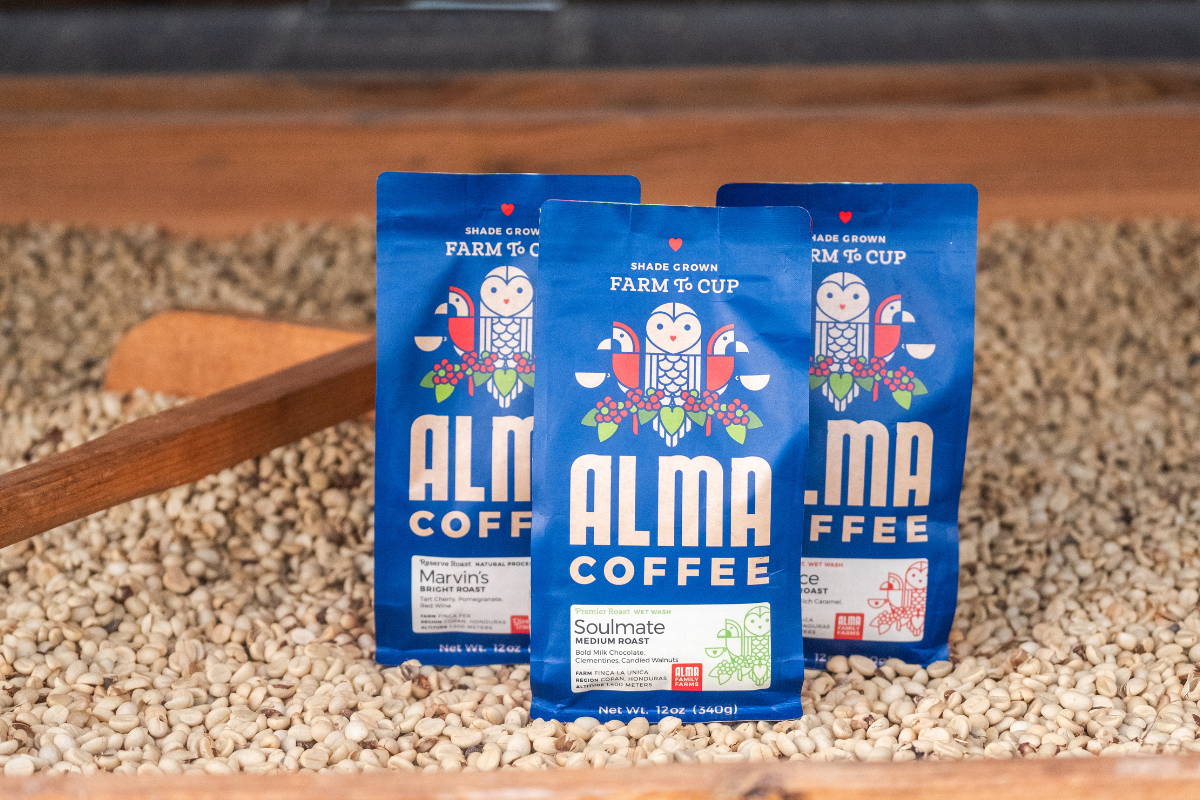
To help those interested in finding specialty graded coffee beans, we put together a few quick tips to determine the SCA or QCI specialty status of any coffee.
Ask the roaster or coffee provider before purchase
Don’t see any information about the specialty status of a coffee on the label or online description? That doesn’t always mean it isn’t a specialty grade coffee!
If you’re genuinely seeking to purchase specialty coffee, don’t be afraid to directly ask the coffee roaster in-person or via email if their coffee is SCA/QCI specialty rated.
If a roaster says they aren’t specialty grade, remember just how difficult it is to achieve specialty recognition OR that their coffee could still be an AMAZING for your own taste preferences; but, if they say the coffee is specialty status, be sure ask them an important question...
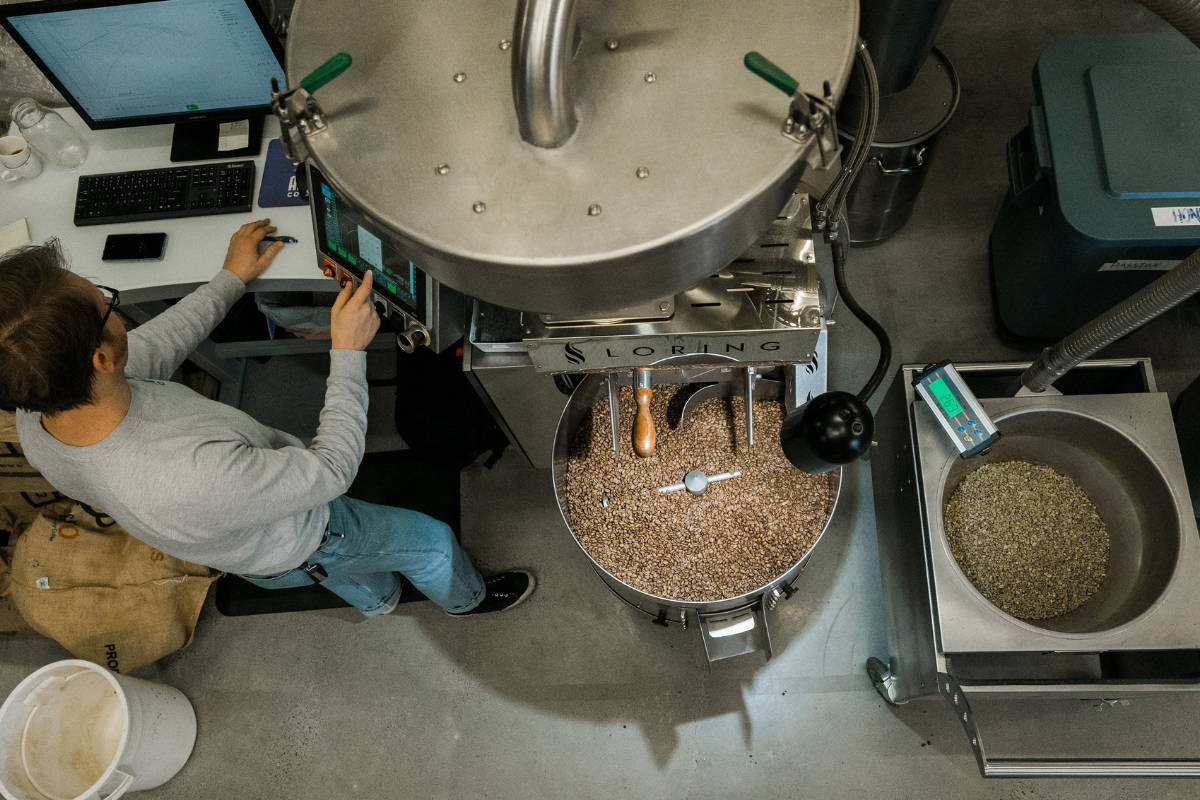
What did a Q Grader rate this coffee?
Like we mentioned, specialty grade coffee is any coffee scored 80 or higher by an unbiased panel of Q Graders, and any roaster who achieves this should have proof in the form of SCA or Coffee Quality Institute (CQI) certifications.
Of course, revealing this information to the public is entirely voluntary, but at the very least a roaster claiming specialty coffee status should be able to explain their Q Grader grading in a good amount of detail to anyone who asks.

The final verdict? Find yourself some specialty coffee and experience just how tasty it is for yourself!
We hope this blog answered many of the questions you might have about what specialty coffee is and where it comes from: if you liked this blog post and want to start getting content like it every other week, subscribe to our email list and get notified when the latest blog post publishes.
Our marketing team dedicates a LOT of time to researching coffee history, science, and trends to give you the most accurate and entertaining written breakdowns, so your subscription tells us we’re doing something right to share our passion for coffee!
Written by: Kelley Bostian



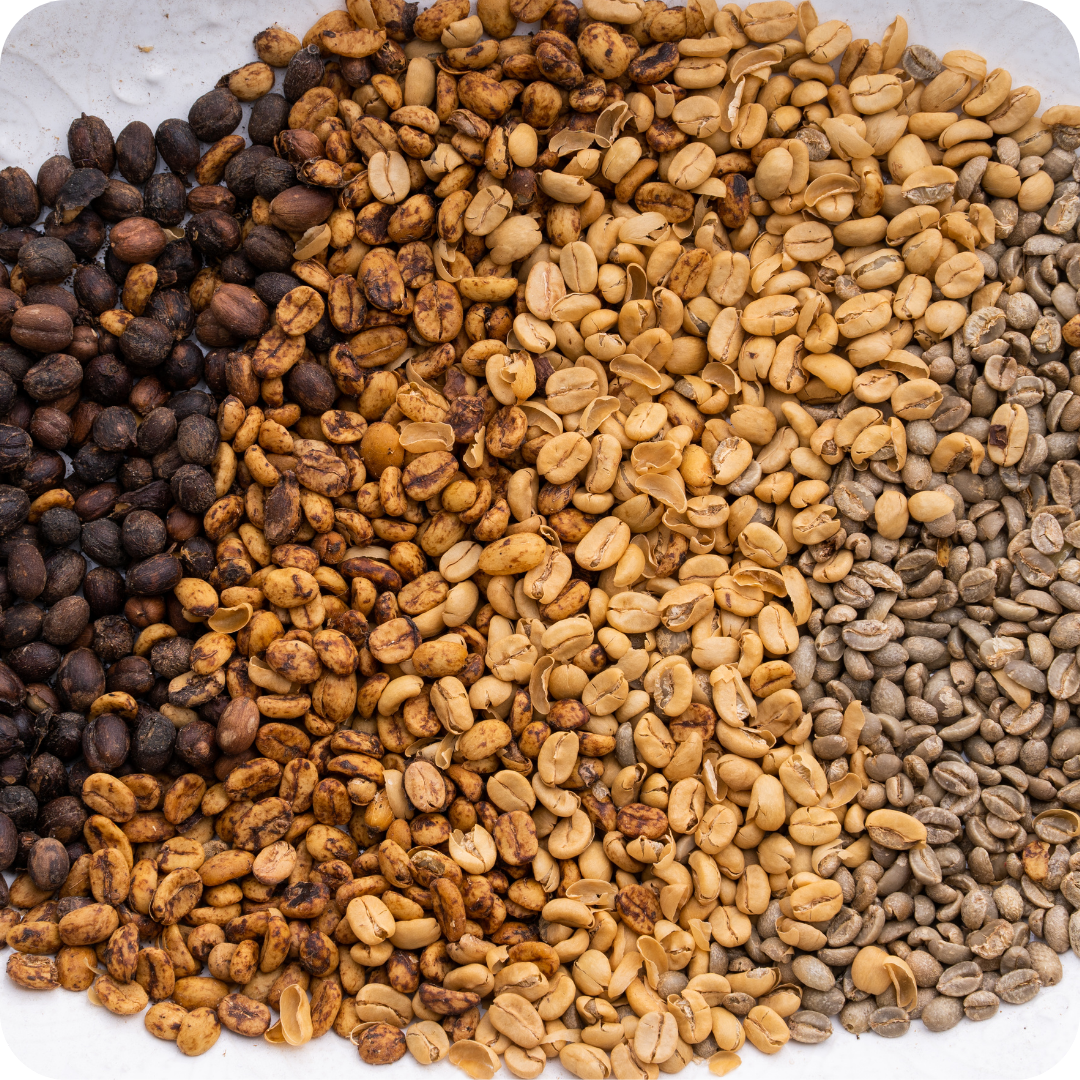
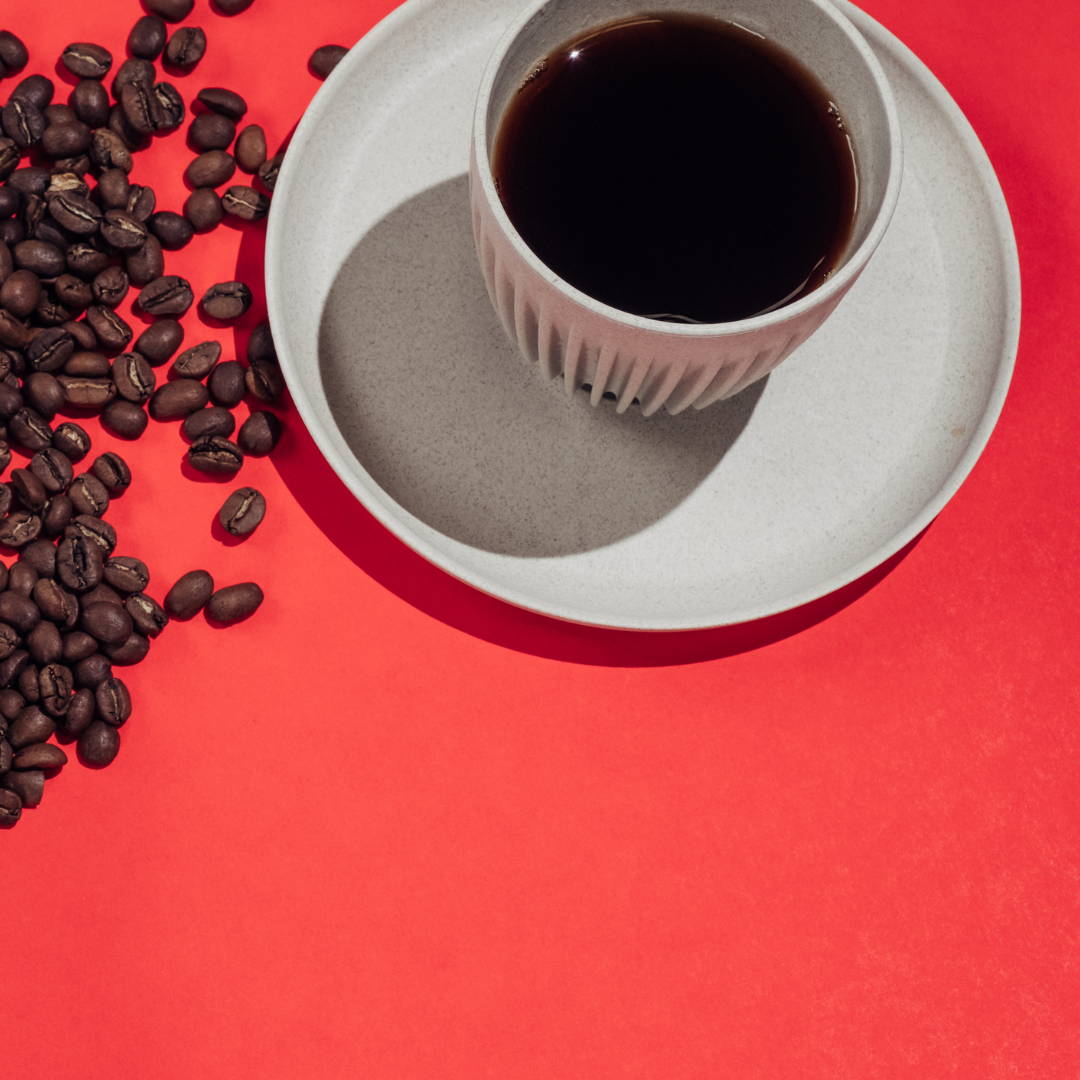
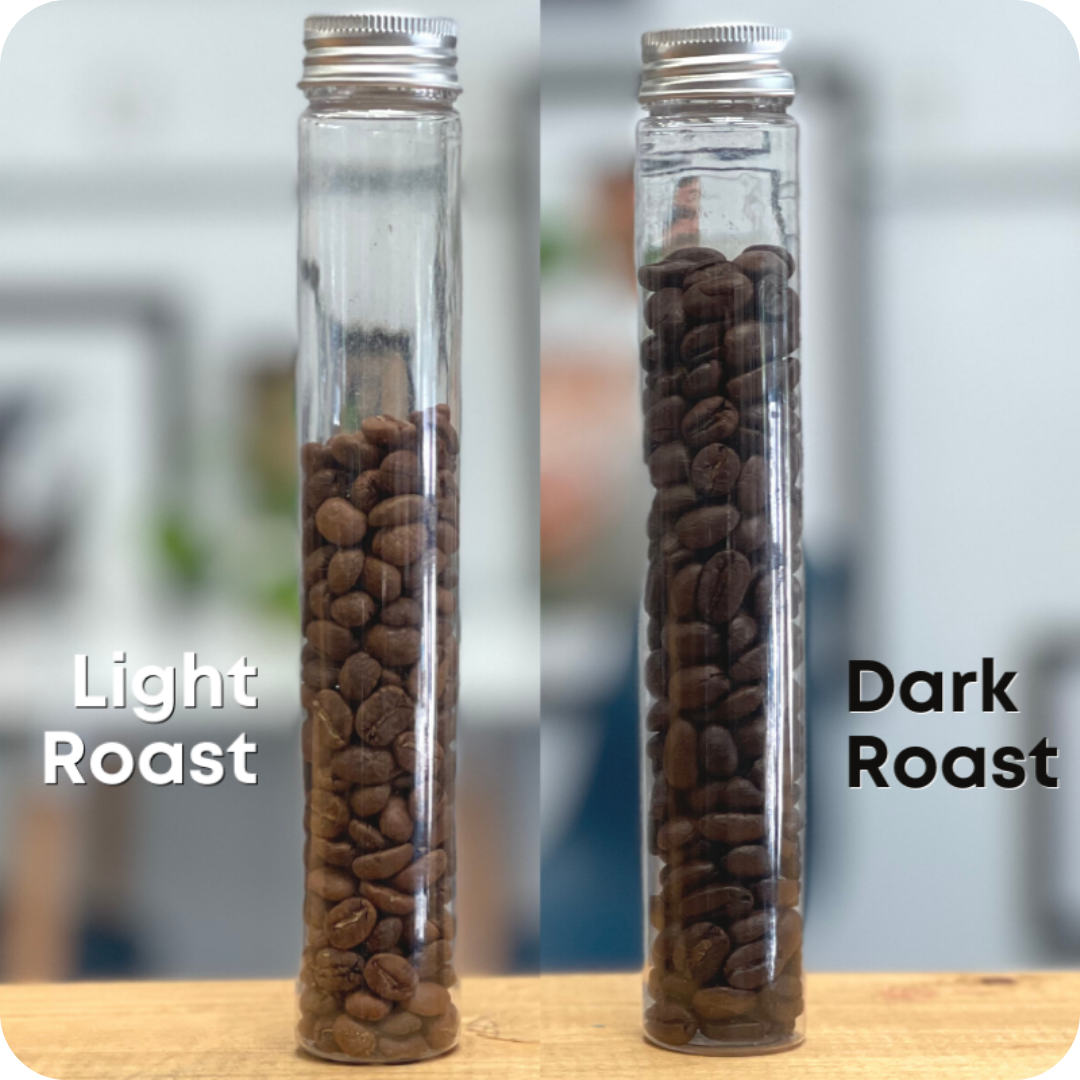


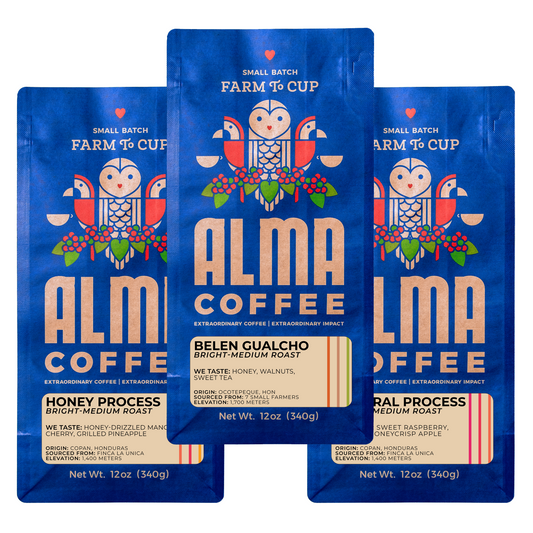
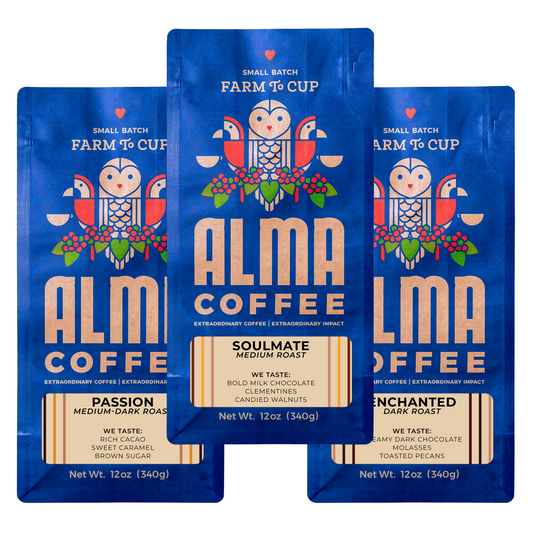
416 comments
https://tinyurl.com/dbsa88kj
https://tinyurl.com/2xkd8jvx
https://tinyurl.com/wafjhha3
https://tinyurl.com/dbsa88kj
https://tinyurl.com/2xkd8jvx
https://tinyurl.com/wafjhha3
https://tinyurl.com/dbsa88kj
https://tinyurl.com/2xkd8jvx
https://tinyurl.com/wafjhha3
https://tinyurl.com/dbsa88kj
https://tinyurl.com/2xkd8jvx
https://tinyurl.com/wafjhha3
https://github.com/NONAME-TV/XXI/discussions/1
https://github.com/NONAME-TV/XXI/discussions/2
https://github.com/NONAME-TV/XXI/discussions/3
https://github.com/NONAME-TV/XXI/discussions/4
https://github.com/NONAME-TV/XXI/discussions/5
https://github.com/NONAME-TV/XXI/discussions/6
https://github.com/NONAME-TV/XXI/discussions/7
https://github.com/NONAME-TV/XXI/discussions/8
https://github.com/NONAME-TV/XXI/discussions/9
https://github.com/NONAME-TV/XXI/discussions/10
https://github.com/NONAME-TV/XXI/discussions/11
https://github.com/NONAME-TV/XXI/discussions/12
https://github.com/NONAME-TV/XXI/discussions/13
https://github.com/NONAME-TV/XXI/discussions/14
https://github.com/NONAME-TV/XXI/discussions/15
https://github.com/NONAME-TV/XXI/discussions/16
https://github.com/NONAME-TV/XXI/discussions/17
https://github.com/NONAME-TV/XXI/discussions/18
https://github.com/NONAME-TV/XXI/discussions/19
https://github.com/NONAME-TV/XXI/discussions/20
https://github.com/KHAN-ZA-TV/xxi/discussions/1
https://github.com/KHAN-ZA-TV/xxi/discussions/2
https://github.com/KHAN-ZA-TV/xxi/discussions/3
https://github.com/KHAN-ZA-TV/xxi/discussions/4
https://github.com/KHAN-ZA-TV/xxi/discussions/5
https://github.com/KHAN-ZA-TV/xxi/discussions/6
https://github.com/KHAN-ZA-TV/xxi/discussions/7
https://github.com/KHAN-ZA-TV/xxi/discussions/8
https://github.com/KHAN-ZA-TV/xxi/discussions/9
https://github.com/KHAN-ZA-TV/xxi/discussions/10
https://github.com/KHAN-ZA-TV/xxi/discussions/11
https://github.com/KHAN-ZA-TV/xxi/discussions/12
https://github.com/KHAN-ZA-TV/xxi/discussions/13
https://github.com/KHAN-ZA-TV/xxi/discussions/14
https://github.com/KHAN-ZA-TV/xxi/discussions/15
https://github.com/KHAN-ZA-TV/xxi/discussions/16
https://github.com/KHAN-ZA-TV/xxi/discussions/17
https://github.com/KHAN-ZA-TV/xxi/discussions/18
https://github.com/KHAN-ZA-TV/xxi/discussions/19
https://github.com/KHAN-ZA-TV/xxi/discussions/20